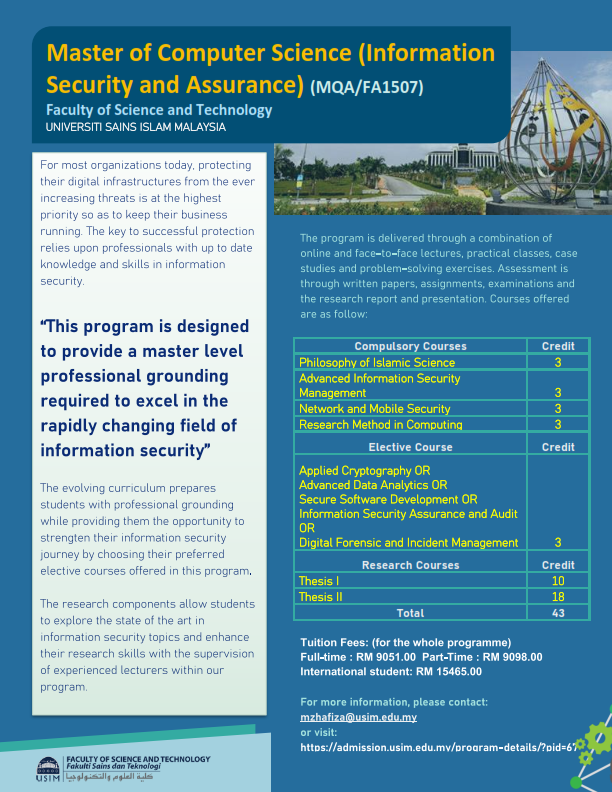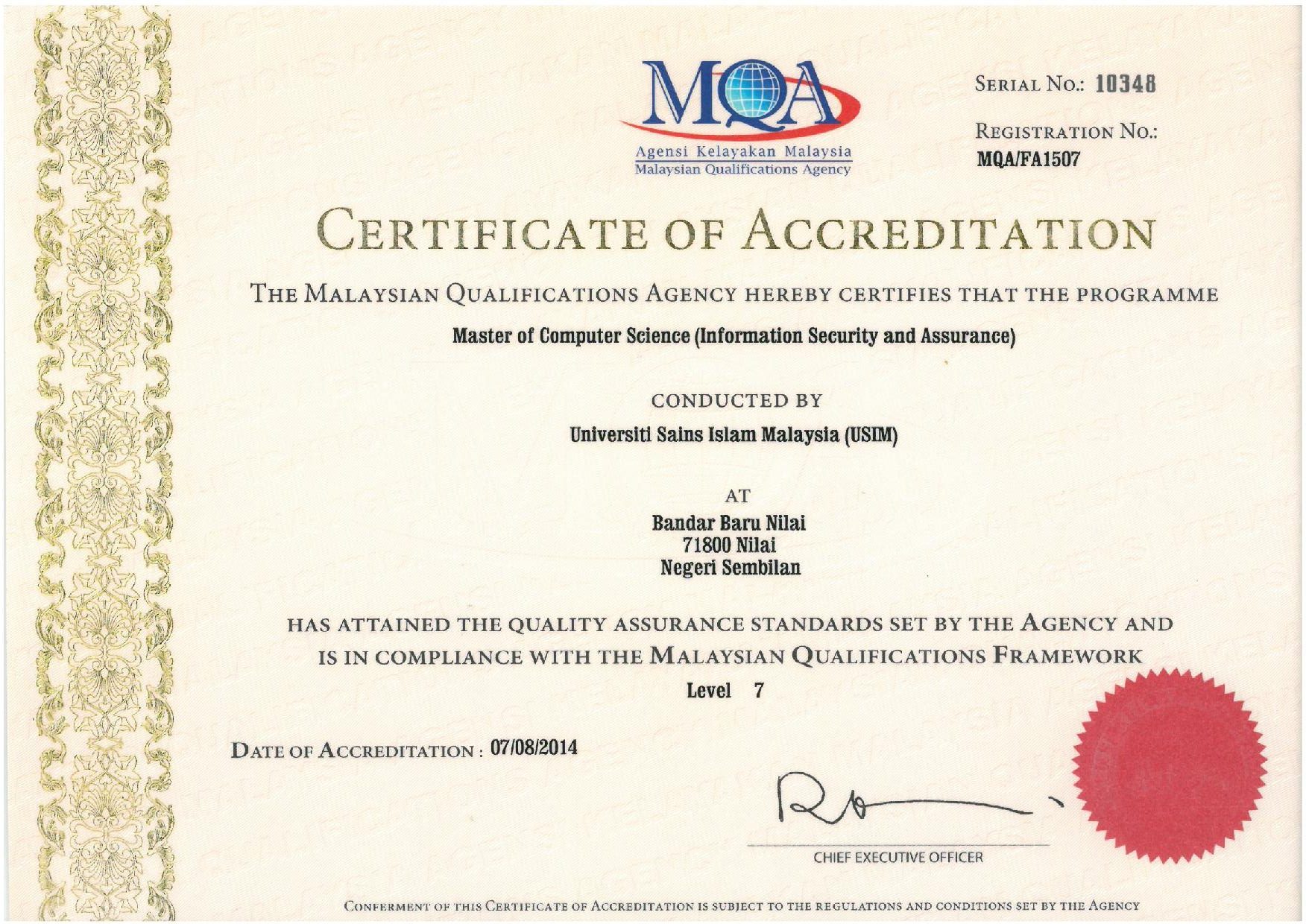Computer science is a field that needs to be developed to improve knowledge and information technology in social education and development. The benefit is to accelerate the accumulation, processing and analysis and dissemination of information can be done efficiently and accurately. This will have a significant impact on the techno-socio-economic development and stability of the country, especially in the face of competition through international manufacturing and trade industries and globalization. Unfortunately, intrusion in the computer industry seems to be a common phenomenon faced by the organization. Hence, computers and information security assurance are essential to all government, private and individual organizations.
The Master of Computer Science (Information Security and Assurance) program was first offered in Semester I, Academic Session 2012/2013. The program is offered in mixed mode structure, and the total number of credit hours for this program is 43 credit hours.

The objectives of the programme are to produce:
- Computing practitioners with advanced knowledge in the field of Information Security who use the best methodologies and techniques to provide innovative solutions to current problems in computing in line with Islamic principles. (LO1, LO2, LO3, LO6, LO7)
- Computing practitioners who have leadership skills and can communicate and interact effectively with various stakeholders. (LO5, LO8)
- Computing practitioners have a positive attitude, engage in lifelong learning activities and are entrepreneurial minded for career success. (LO9, LO10)
- Computing practitioners who uphold ethical values as well as professional practices in maintaining personal and career integrity. (LO4, LO11)
Upon completion of the programme, graduates should be able to:
- Integrate advanced knowledge related to current research issues of computing especially in the field of Information Security and Assurance. (Knowledge)
- Recommend innovative solutions that are at the core of developments in the field of study. (Cognitive Skills)
- Evaluate computing solutions and tools in terms of their usability, efficiency and effectiveness, especially in the field of Information Security and Assurance. (Practical Skills)
- Work effectively in groups with a diverse audience by publishing and presenting technical material in the field of study. (Interpersonal Skills)
- Communicate and interact effectively in various forms of material with various stakeholders. (Communication Skills)
- Using information and digital tools to acquire, interpret and expand knowledge in computing. (Digital Skills)
- Use numerical skills to acquire, interpret and extend knowledge in computing. (Numeracy Skills)
- Demonstrate leadership, teamwork, autonomy and responsibility in providing services related to the field of study. (Leadership, Autonomy and Responsibility)
- Demonstrate the ability to expand knowledge through lifelong learning. (Personal Skills)
- Showcasing the entrepreneurial mindset related to the field of study. (Entrepreneurial Skills)
- Uphold professional and ethical practices in conducting research and providing services related to the field of study. (Ethics and Professionalism)
Graduates in this field can participate in the communications, multimedia, telecommunications, finance, banking, security, fund, trust fund, takaful, insurance, management, trade, computer fabrication, software, information technology, consulting, mining, transportation (land, sea and air). In addition, they can also be entrepreneurs, franchisors or working in the public sector.
